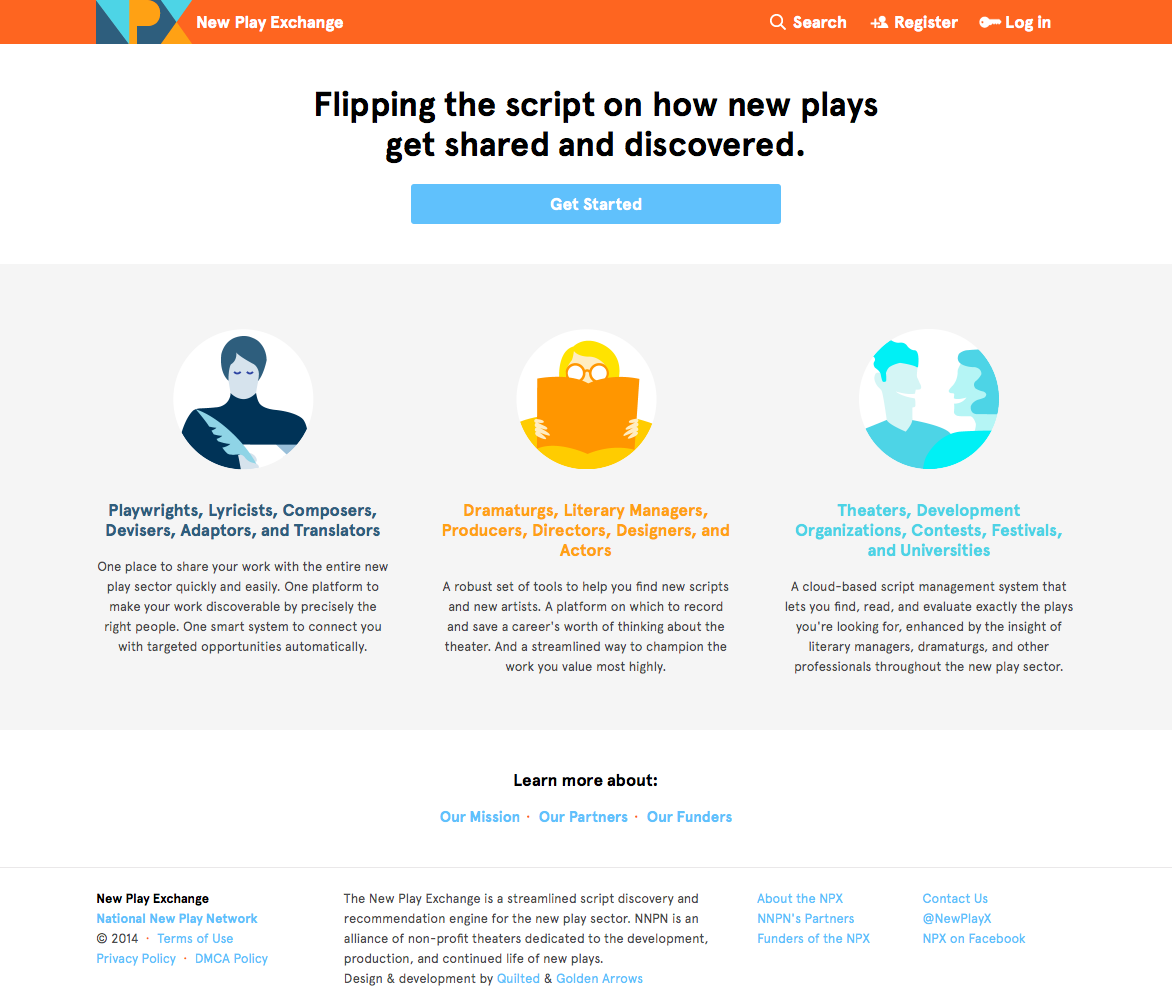People have asked my opinion on fees a lot over the years, so here it is, for better or worse, for agreeing or disagreeing.
Play submission fees are on the rise.
Worse–whether it’s the result of economy, copycatting, or emulating the film/fiction/poetry industries–they aren’t going away.
In the wake of my most recent blog post about newly added fees and the revelation that the Neil Simon New Play Contest‘s egregious jump from $25 to $150 entry fee (instituted just months after Simon’s death; coincidence?), the fee debate has been raging louder than ever.
Essentially, when it comes to fees, there are at least four factions:
ONES don’t pay any fees.
TWOS don’t pay any fees but the O’Neill.
THREES choose judiciously which fees to pay (I admit to being a THREE, though I know a lot of us don’t.)
FOURS will pay any fee for a chance to put a line on their resume.
I don’t want to pass judgment about which one you are; we all have our reasons and our career goals and they change as we continue the journey. However, before I go on, I will once again plug the Dramatists Guild Best Practices so that every playwright has the tools to talk about opportunities in terms of what is best vs. what might be worth ponying up a fee for. The importance of familiarizing yourself with these can’t be overstated in this current fee-happy atmosphere.
On a case by case basis, playwrights have been successful in fighting fees, and I will always lead and encourage these letter-writing campaigns, particularly in the case of newly added fees or increases, or when opportunities want unproduced work and not only aren’t paying, but also have the gall to charge a fee. But ceasing the practice through any kind of collective action–while a desirable goal–is likely impossible for three reasons:
1) Some of the best opportunities for playwrights–O’Neill, Great Plains, Seven Devils, Ashland, etc.–have fees (FWIW, these opps have been charging fees forever and they have never gone up). As long as this is true, I think complete buy-in is impossible, because as long as these fees are being paid and new opportunities like them are introduced, the line in the sand keeps shifting.

2) As new playwrights continually enter the business, they see fees and think they are the norm. And in many cases, these are the very playwrights who are looking for those lines on their resumes. Early playwrights are often FOURS.
3) As evidenced by the entries to the aforementioned Neil Simon contest, FOURS will always exist.
I see 1) and 2) as related but separate issues, and it’s the second one that has me most concerned, and that necessitates the most need for education and, dare I say, resistance. Why? Because the value of that line on the resume matters, and the way things are going, a playwright could go broke trying to add lines that don’t represent much worth. If you’re on a budget, there are better ways to spend the dollars allotted to your playwriting career. In short, while I don’t believe collective action can stop fees, I do believe it can keep it in check.

Just as I set a playwriting travel budget, I set a budget for big opp fees as well as other reasonable fees when the prize is production or a prestigious reading, and for the same reason. Because being in the room and involved with those opportunities has the potential to help my career. Where I put my foot down and encourage others to do the same is in situations where you there is nothing to be gained EVEN IF YOU’RE SELECTED. Those ten-minute festivals at theaters you never heard of where they select your play and you never hear another word–not a review, a program, a show report, NPX recommendation, and certainly not a DVD or video. Sadly, that’s most of them; they take submissions over using published plays so they don’t have to pay royalties, not because they care deeply about playwrights.
So before you plunk down a fee, ask yourself, “If I am selected…”
1) What will my level of involvement be, i.e. if it’s a new play, will the theater help me develop it? Will I be involved in casting, rehearsals, etc. even if remotely?
2) Can I attend? Will I gain from seeing the play on stage so that I can revise it to be better next time (keeping in mind that often the festivals that charge fees are amateur organizations that might not be rendering the best productions)? Are there actors and directors I might meet that will expand my network in useful ways? (Note on this: if this applies, and a fee can get you in a smaller pile, it is a way to better your chances of gaining this experience, but this only holds true for those who really need it.)
3) Is it an NPX member and will they leave me a recommendation? Send me a video and/or feedback?

4) If none of the above, is this a theater that does full-length new work? Would they look at my full-length script?
5) Even if I am selected, is it worth paying for the chance when there are so many other ten-minute opportunities that cost nothing?
If neither 1, 2, 3, or 4 are true, there is little use paying this fee for a chance in this festival–particularly if it’s only a ten-minute play festival–because the line on the resume is only as valuable as what you gleaned from the experience. I’ve had some people say to me “But maybe I just want to know my play is being produced.” To which I say, “Of course, but there are many similar opportunities that will give you that line on your resume–for free. That’s the bulk of my ten-minute play productions.”
Most of the theaters charging these fees are new to the scene, or very small theaters that aren’t going to make or break your next chance at production. And if they only produced a ten-minute play, it will have even less value (and yet the number of these charging $10 or $15 and now even $20 per entry is becoming scary). Save your money and leave those festivals to local playwrights who can reap the benefit of experience. Using the above parameters, I pay for exactly two short play festivals.
6) Again, is it an NPX member who will leave me a recommendation? (This is something you can ask for!)
7) If I am only getting a reading from this, can I attend the reading? Is the theater one that might ultimately produce the work? Will I meet actors and a director who might be able to further my work in some way? This is almost always going to relate to full-length work as opposed to ten-minute things (which seem to be the bulk of who is asking for fees). I recently had a play accepted into a reading series in Wyoming. The travel cost was prohibitive and they weren’t helping, so I asked around and discovered that theater is tiny, rarely if ever does new work, and that the reading series is poorly attended. I passed and they dropped my script from the lineup; they didn’t care about the play–they just wanted a playwright to show up. Cost-benefit analysis is important.
8) If the prize is production–and this is again, almost always going to be a community or semi-professional theater–are there royalties? Are they going to want world premiere rights but not pay for them or follow a professional contract? Will they pay for me to attend?
9) Is the opportunity prestigious enough that taking a gamble on being named a finalist is worth it? This is the logic behind the O’Neill and other big development festivals, and there is more merit to being a semi-finalist or finalist in one of these than actually being chosen for one of the myriad small ten-minute play festivals.
10) Is the opportunity so good that if I’m not chosen, I feel okay about the fee contributing to another playwright’s experience? (This is a factor for me.)
(don’t forget to check out my new website by clicking on the home page!)
–Please follow me on Twitter @donnahoke or like me on Facebook at Donna Hoke, Playwright.
–Playwrights, remember to explore the Real Inspiration For Playwrights Project, a 52-post series of wonderful advice from Literary Managers and Artistic Directors on getting your plays produced. Click RIPP at the upper right.
–To read #PLONY (Playwrights Living Outside New York) interviews, click here or #PLONY in the category listing at upper right.
–To read the #365gratefulplaywright series, click here or the category listing at upper right.
–For more #AHAinTheater posts, click here or the category listing at upper right.
11) (for me) Is it an organization I would have made a donation to anyway?
Chas — It’s doubtful I’d be making a donation to an organization that charges fees, but I consider any fee a donation, which is why I ask myself if I mind supporting other playwrights with it.
Donna
I am suspicious of a number of these fee submissions. You see awards of small amounts of money while the fees driven by submissions amount to a good deal more.
I pay fees rarely but when I do it is to a small publication or theatre group or nonprofit. The rest can go to hell.
The ones that are money grabs are pretty easy to spot, and tend to be the ones that don’t offer anything, even to those selected.